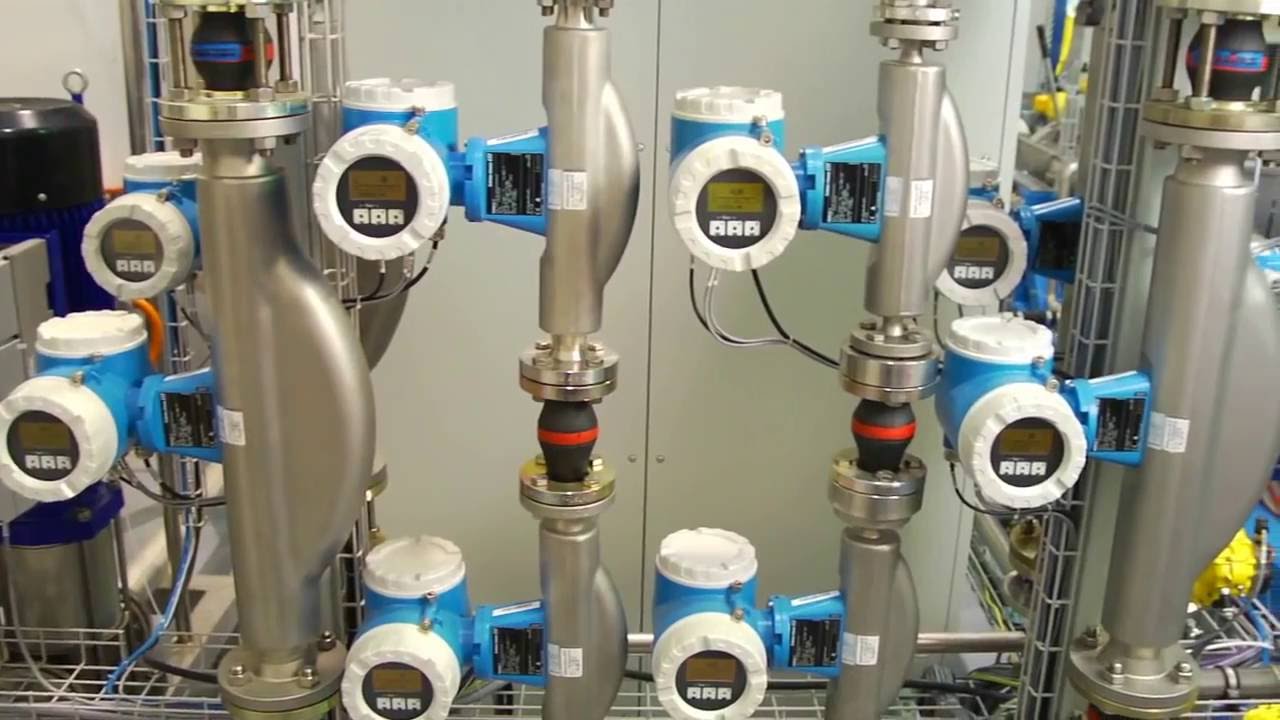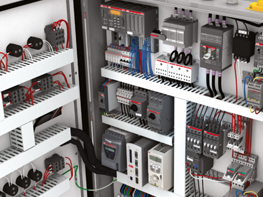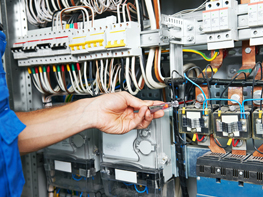INDUSTRIAL INSTRUMENTATION
- Home -
- INDUSTRIAL INSTRUMENTATION

INDUSTRIAL INSTRUMENTATION
Instrumentation is a collective term for measuring instruments that are used for indicating, measuring and recording physical quantities such as flow, temperature, level, distance, angle, or pressure. The term has its origins in the art and science of scientific instrument-making. Instrumentation can refer to devices as simple as direct- reading thermometers, or as complex as multi-sensor components of industrial control systems. Today, instruments can be found in laboratories, refineries, factories and vehicles, as well as in everyday household use (e.g., smoke detectors and thermostats).
Instrumentation engineering is the engineering specialization focused on the principle and operation of measuring instruments that are used in design and configuration of automated systems in electrical, pneumatic domains etc. and the control of quantities being measured. They typically work for industries with automated processes, such as chemical or manufacturing plants, with the goal of improving system productivity, reliability, safety, optimization and stability. To control the parameters in a process or in a particular system, devices such as microprocessors, microcontrollers or PLCs are used, but their ultimate aim is to control the parameters of a system.
Instrumentation engineering is loosely defined because the required tasks are very domain dependent. An expert in the biomedical instrumentation of laboratory rats has very different concerns than the expert in rocket instrumentation. Common concerns of both are the selection of appropriate sensors based on size, weight, cost, reliability, accuracy, longevity, environmental robustness and frequency response. Some sensors are literally fired in artillery shells. Others sense thermonuclear explosions until destroyed. Invariably sensor data must be recorded, transmitted or displayed. Recording rates and capacities vary enormously. Transmission can be trivial or can be clandestine, encrypted and low-power in the presence of jamming. Displays can be trivially simple or can require consultation with human factors experts. Control system design varies from trivial to a separate specialty.
Instrumentation engineers are responsible for integrating the sensors with the recorders, transmitters, displays or control systems, and producing the Piping and instrumentation diagram for the process. They may design or specify installation, wiring and signal conditioning. They may be responsible for calibration, testing and maintenance of the system.

Structure of Industrial Instrumentation
Calibration in measurement technology and metrology is the comparison of measurement values delivered by a device under test with those of a calibration standard of known accuracy. Such a standard could be another measurement device of known accuracy, a device generating the quantity to be measured such as a voltage, sound tone, or a physical artefact, such as a meter ruler.
The outcome of the comparison can result in no significant error being noted on the device under test, a significant error being noted but no adjustment made, or an adjustment made to correct the error to an acceptable level. Strictly speaking, the term calibration means just the act of comparison, and does not include any subsequent adjustment.
Click to Read More
Click to Hide
TRAINING PROGRAMS
QUALIFICATION: M.Tech / B.Tech / B.E / DIPLOMA (EEE / ECE / EIE / B.Sc.Electronocs / Mechatronics / Instrumentation)
Apply NowQUALIFICATION: M.Tech / B.Tech / B.E / DIPLOMA (EEE / ECE / EIE / B.Sc.Electronocs / Mechatronics / Instrumentation)
Apply NowJOB AREA
- OIL & GAS
- Food & Pharma
- Manufacturing & Processing
- Power Plants
- Automobile
- Aviation Etc...
HIGHLIGHTS
- Industry Experienced and qualified faculties(Gulf & India).
- Best in class Lab with all major brand products.
- Individual Practical training
- wide job opportunities at Abroad & India
ENQUIRY
GULFTECH TRAINING CENTRE
QUICK ENQUIRY




